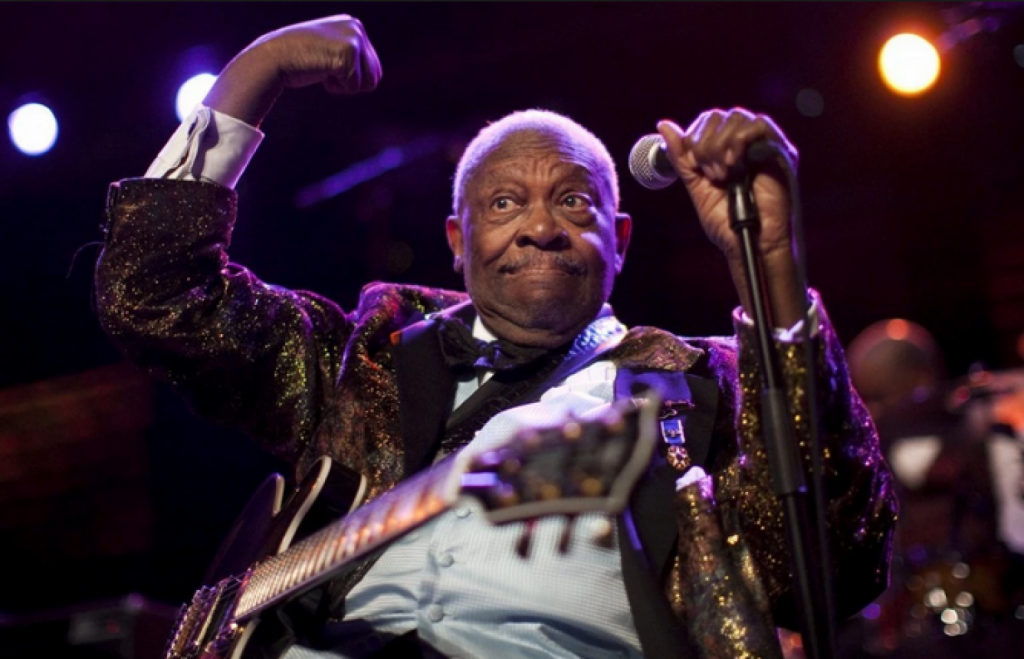By Daniel Silliman
He was attracted to the Church of God in Christ because of the music. The King family had been Baptist. The Baptists’ musical tastes were more staid, more traditional than the young King liked, however.
“If you were in the Baptist church, they didn’t want you to bring a guitar in,” he said in an interview with the chairman of the National Endowment for the Humanities in 1999. “So I didn’t really dig the Baptist church too much.”
The pastor of the local Church of God in Christ, on the other hand, played a Sears Roebuck Silvertone guitar. The Rev. Archie Fair led church with his guitar.
The church was a part of a strict sect of pentecostals, who believed true Christians could live free from sin, “sanctified.” In some ways, the Church of God in Christ was more conservative than the Baptists. But not when it came to music. King thrilled to the church’s worship style.
One fateful Sunday, a pentecostal pastor taught King to play three basic chords.
After that, King was converted.
He volunteered to be a janitor at the church so he could spend time with the instruments. Though King worked all week in the cotton fields, he taught Sunday school to children younger than himself. He got the nickname “church boy” and didn’t care.
King soon found more thrilling music outside the walls of church, though. An aunt, only a few years older than King, exposed him to her collection of 78 rpm records. She played him Blind Lemon Jefferson and Lonnie Johnson. He started going to the store in Indianola, Miss., on Saturdays to listen to the blues on the radio. A cousin, Booker “Bukka” White, was living in Memphis, making a living playing the blues, and would come back to Mississippi sometimes with a beautiful guitar and sharp new clothes.
Still, the blues seemed shameful to King. They were exciting but felt wrong.
“I was ashamed, man,” King told the BBC in 1972. “The people around us was very religious. I always say they were very religious, very hypocritical. Because, if they wasn’t religious, they seemed to act the part.”
Read Daniel Silliman’s entire Washington Post article HERE.

